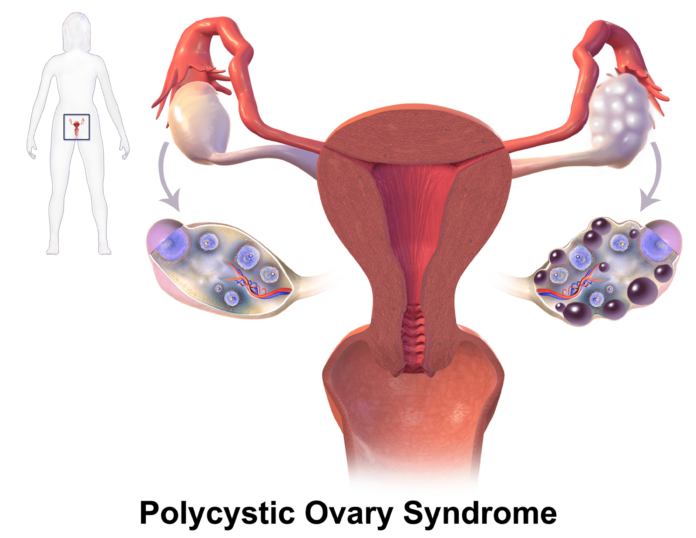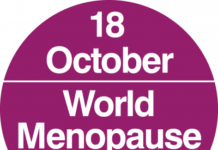 By BruceBlaus - Own work, CC BY-SA 4.0, https://commons.wikimedia.org/w/index.php?curid=60834704
By BruceBlaus - Own work, CC BY-SA 4.0, https://commons.wikimedia.org/w/index.php?curid=60834704Clinical Nutritionist shares dietary tips to help reduce the symptoms of PCOS
Polycystic Ovary Syndrome (PCOS) affects up to one in ten people with ovaries in the UK and is described as the most common endocrine and metabolic disorder of women of a reproductive age.
People who are diagnosed with PCOS often struggle with hormone-related symptoms which include irregular periods, weight gain, mood dysregulation and infertility. The metabolic changes seen in those with PCOS can increase the risk of non-communicable diseases such as insulin resistance, leading to body shape and weight concerns.
Studies show that 12-35% of individuals with PCOS display disordered eating patterns and 60% experience binge eating episodes*. Therefore, personalised nutrition support can improve the quality of life and help reduce the symptoms of PCOS in some individuals.
As part of its holistic approach to weight loss, Emily Wood, Clinical Nutritionist and Coach at Voy has shared her advice on the foods which can help those living with PCOS.
-
Swap simple carbohydrates for complex carbohydrates
Reducing the intake of carbohydrates is often recommended for those diagnosed with PCOS. However, cutting down on carbohydrates can be harmful in the long term, causing cravings and reducing the consumption of important fibres and wholegrains which improve gut microbiome.
Therefore, simple carbohydrates such as white rice and bread can be replaced by complex carbohydrates which have a lower glycemic index such as quinoa and bulgur wheat. Complex carbohydrates take longer to be digested in the gut, reducing blood glucose spikes and associated insulin production.
-
Protein
Research has shown that adding protein sources into low glycemic index meals can improve insulin sensitivity, support sustained blood glucose levels and help with weight loss. Therefore, increasing the intake of protein can help slow down the rate of digestion and has been shown to positively impact those with PCOS.
-
Omega-3 fats
Alongside protein, implementing a source of Omega-3 fats can help to improve the inflammation which is commonly associated with PCOS. Foods that are high in Omega-3 fats include oily fish or plant-based options such as chia, flaxseeds and walnuts.
-
Regular meals
Eating regularly across the day can help to manage blood glucose levels, resulting in stable insulin levels. This can help to manage some of the hormonal imbalance experienced in PCOS.
Examples of foods which can help with symptoms of PCOS
-
Lean meats
-
Seaweed
-
Algae
-
Chia
-
Flaxseeds
-
Walnuts
-
Oily fish
-
Brown rice
-
Quinoa
-
Bulgur wheat
-
Pearl barley
Comment provided by Emily Wood, Coach and Nutritionist at Voy.
Emily is an AFN accredited registered Clinical Nutritionist (MSc Eating Disorders and Clinical nutrition UCL, BSc Biological Sciences; Infectious Disease & Microbiology).
Voy is a dedicated weight loss programme that combines breakthrough GLP-1 medication with one-to-one coaching from a team of coaches, clinicians and nutritionists. Providing a science-backed approach with an emphasis on building healthy habits, Voy is billed as the last weight-loss programme its customers will ever need.
Help keep news FREE for our readers
Supporting your local community newspaper/online news outlet is crucial now more than ever. If you believe in independent journalism, then consider making a valuable contribution by making a one-time or monthly donation. We operate in rural areas where providing unbiased news can be challenging. Read More About Supporting The West Wales Chronicle


























